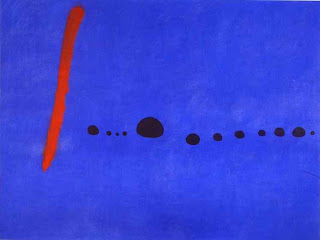
Lady Gregory read Yeats’s ‘To a Friend Whose Work Has Come to Nothing’ with sympathetic interest, thinking it was about Hugh Lane, when in fact it was about her. Poets and the theme of failure make for an interesting mix. I’ve always found Dante’s encounter with his old mentor Brunetto Latini one of the most moving things in the Inferno. Dante places Latini in hell for the sin of sodomy (he is one of those who ‘do violence against nature’), but even in their infernal surroundings he attends reverently to the old man’s words, damned soul though he is. He asks Brunetto who his most eminent companions were, and the shade replies:
Ed elli a me: ‘Saper d’alcuno è buono;
de li altri fia laudabile tacerci,
ché ’l tempo sarìa corto a tanto suono.’
It could be an exchange from Hugh Selwyn Mauberley. And then in a beautiful and haunting image of defeat, the canto ends:
‘Di più direi; ma ’l venire e ’l sermone
più lungo esser non può, però ch’i’ veggio
là surger nuovo fummo del sabbione.
Gente vien con la quale esser non deggio.
Sieti raccomandato il mio Tesoro
nel qual io vivo ancora, e più non cheggio’.
Poi si rivolse, e parve di coloro
che corrono a Verona il drappo verde
per la campagna; e parve di costoro
quelli che vince, non colui che perde.
Adam Kirsch quotes these closing lines in Robert Lowell’s translation in the current NYRB, in a review of Christopher Ricks’s new book on Eliot and allusions to him in Hill, Hecht and Lowell:
Then he turned back, and he seemed one of those
who run for the green cloth through the green field
at Verona... and seemed more like the one
who wins the roll of cloth than those who lose.
Kirsch comments: ‘As Ricks’s study shows, damning your predecessor is sometimes the best way of ensuring his immortality.’
I was also reminded, though, by these lines of Derek Mahon’s elegy for James Simmons, ‘Art and Reality’, in his newly-published An Autumn Wind. Recycling Swift’s ‘Verses on the Death of Dr Swift’, Mahon writes:
Oh, you could be a royal pain,
thorn in the side, flea in the ear.
Had you but spar’d your tongue and pen
you might have rose like other men –
though what’s the point of ‘rising’ when
the kind of work we favoured thrives
in the night silence of the nerves?
What is the status of those quotation marks round ‘rising’? As anyone who has read Heather Clark’s The Ulster Renaissace: Poetry in Belfast 1962-1972 (and plenty of people who haven’t) will know, Simmons could be a difficult character, who, if he did not enjoy the same success as Heaney, Longley or Mahon, was not above berating and browbeating his friends for dereliction of their home duties as they achieved wider recognition and academic esteem. (I find Clark’s book chilling, I must say, as a case-study in how poets artificially yoked together by accident of birth, geography or reviewer’s label must forever after remain on the same critical teamsheet.) Mahon calls on Swift to make light of the whole filthy business of reputation (Swift would surely have extended to literature his characterisation of politics as a profession in which crawling and climbing constitute the same activity), holding his nose against the vulgar horror of ‘rising’. Yet the fact remains, not just in what we know of the two writers’ divergent paths after the heady days of the 60s and early 70s, but in Mahon’s poem too, that Simmon’s failure to rise (or ‘rise’) is a strongly determining element in the elegiac pathos at work. If Simmons was lucky enough to discover his inner D.H. Lawrence in the Presbyterian badlands of post-war Ulster, there is something sad and miserable about the spectacle of his épatement des bourgeois:
You cherished girls of every age
and pitied the poor Paisleyite
deprived of your advantages.
Often your dodgy sexual ethic
emptied front rows; some splenetic
alderman would throw a tantrum.
Hillsborough, Portadown and Antrim
saw shocked audiences walk out.
Mahon raises the question of his entitlement to tell Simmons’ story, answering himself in fairly doctrinaire style:
We flinch, of course, when someone writes
our story by his different lights;
yet what I say agrees, I know,
with your self-estimate.
How does he know this? Does this mean he is vindicating Simmons’ special qualities, which went unrecognised during his lifetime, in which case why the quotation marks round ‘rising’? So: he really should have risen, and may do yet, thanks to Mahon’s elegiac sponsorship. But Simmons ‘chose /reality over art and pose’, flinty plain-speaking and authenticity over all the apparent aesthetic frippery and (again, apparent) escapism of Mahon’s early art. ‘We disagreed there at the start’, he comments. The difference between the two men remains. Mahon’s elegy does not solve it. Nor does it gloss it over. Instead it shows it like a scar in those giveaway quotation marks round the word ‘rising’. It is a cause of deep regret to the elegist that Simmons should have suffered the frustrations he did, but the poet cannot quite decide whether this was a struggle worth winning or not (whether for reasons to do with the quality of Simmons’s work or Mahon’s own view of the literary world), or whether his bringing the subject up in the first place doesn’t place him in the same position of arch superiority we find in Dante on Brunetto Latini, exalting and condemning him all at once. Perhaps, finally, it is in the nature of elegy itself to want us to disagree with those we flatter ourselves we are honouring. Whether Mahon felt any of these impulses as he wrote the poem, I do not know. But those quotation marks certainly register them, do they not.



















